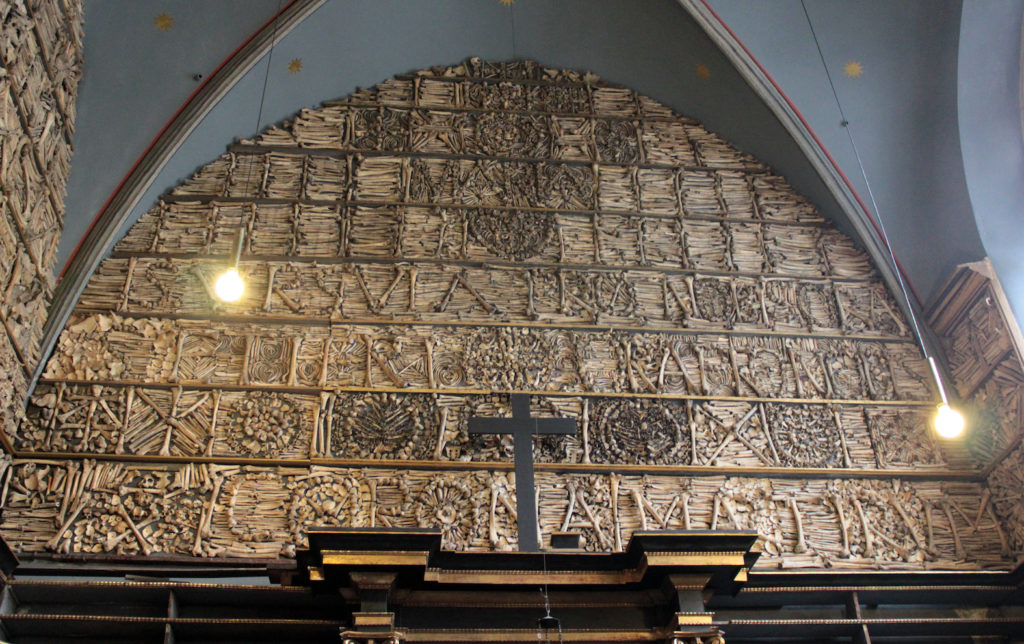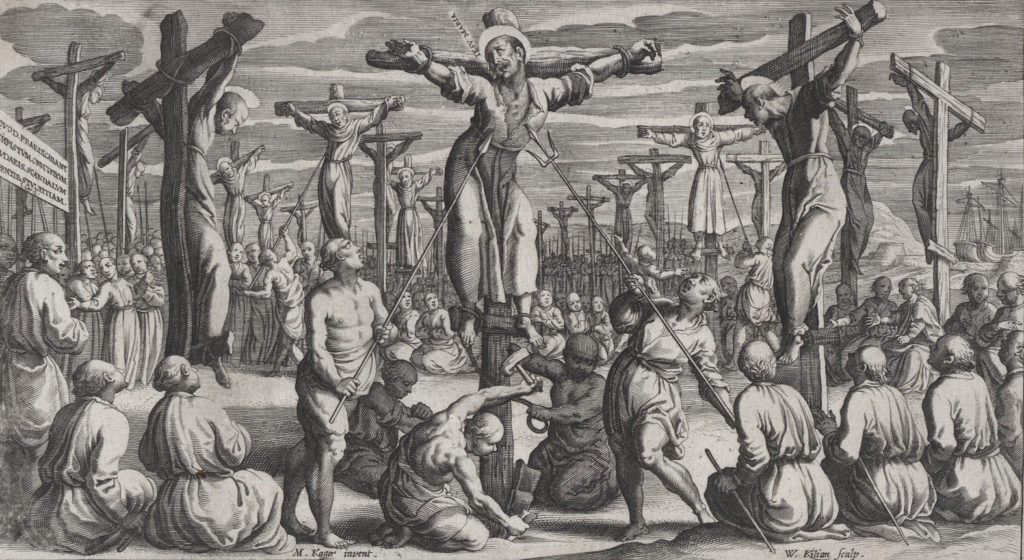Every few months I have a little chuckle while drinking my morning coffee and reading my devotional. It happens on the feast days dedicated to a martyr and his or her companions.
To be clear, I do not think martyrdom is funny. It’s that God has found a way to remind me every so often in the liturgical calendar of the change he’s rendered in my heart.
There are quite a few times throughout the year that we remember these cohorts: St. Paul Miki and companions (Feb. 6); St. Charles Lwanga and companions (June 3); St. Andrew Kim Tae-gon, St. Paul Chông Hasang and companions (Sept. 20); and St. Ursula and companions (Oct. 21), to name but a few.
“Those poor people,” I used to think. “All of them martyrs but only one or two remembered by name. To die that kind of death, but the one next to you gets the recognition ...”
And were they memorable deaths: the Japanese missionaries with Miki were crucified with their heads fastened upright; Lwanga and his companions were burned alive; the Korean martyrs were tortured and beheaded; and Ursula and the 11,000 virgin martyrs were ambushed by soldiers in Cologne, Germany, after returning from a pilgrimage to Rome.

To be unnamed and unknown used to feel unjust, a slight this side of eternity.
That’s because having my name known was something that once mattered to me.
I started my professional life as a teacher in Washington, D.C. In a city filled with individuals hungry for political influence and cultural sway, I was a nobody. “What do you do?” people would ask me at cocktail parties. When I answered, they quickly moved on to someone else.
But when I made a career change and suddenly had access to journalists, producers, and individuals chairing important boards, people started remembering my name. My invitations to conferences and galas piled up. I had an easier time getting published, and people in positions of influence began calling me for advice. It was exciting, and as that circle broadened, having my name known grew more addictive.
This temptation is not limited to those living inside the Beltway, nor is it unique to our own time. Even James and John wanted to sit at Jesus’ right and left in his glory.
But it is an attitude we’re conditioning people to have today, starting with kids.
Social media is designed to induce dopamine highs from likes and shares. College students are taught how to “brand” themselves for the job market. Individuals post every professional accomplishment and accolade on LinkedIn. We’re all supposed to generate a “vibe” for our friends and followers.
We’re all mini-celebrities in our own minds.
My “D.C. detox” took a few years. There wasn’t a big moment that changed my mindset — the realities imposed by my vocation slowly shifted my attitude.
Getting married was a start — I literally took a new last name (and given its Ukrainian-Polish origin, most people can’t pronounce it).
More importantly, I was deeply known by one man, which is incomparably more fulfilling than being superficially known by others.
Moving to a new city where my husband was pursuing graduate studies ushered in a new professional chapter. That came with novel opportunities — many for humility. I found that folks in Boston didn’t care much for Washington, D.C. And since I didn’t have any historical ties to an Irish Catholic parish, nor did I attend one of the city’s many universities, I was only as interesting or valuable as my most recent assignment.
This is not to mention having three sons in four years. I don’t know if any of them even know my first name.
This is why I laugh at the liturgical calendar. My vocation is now literally to be a nameless companion. It is to travel alongside the four men in my life as they work on becoming saints and to do what I can to help them.
To the world, this is insane. And to the 2010 version of me, it would be a bit of a head-scratcher, too. Trading kitten heels for kitchen gloves and running kids to sports instead of running meetings appears like a raw deal. But it’s actually been a mercy.
Most of what I do now is hidden from view, even from the men in my family. But one person knows. And he knows the names of all the saints’ companions. And now that is enough.

